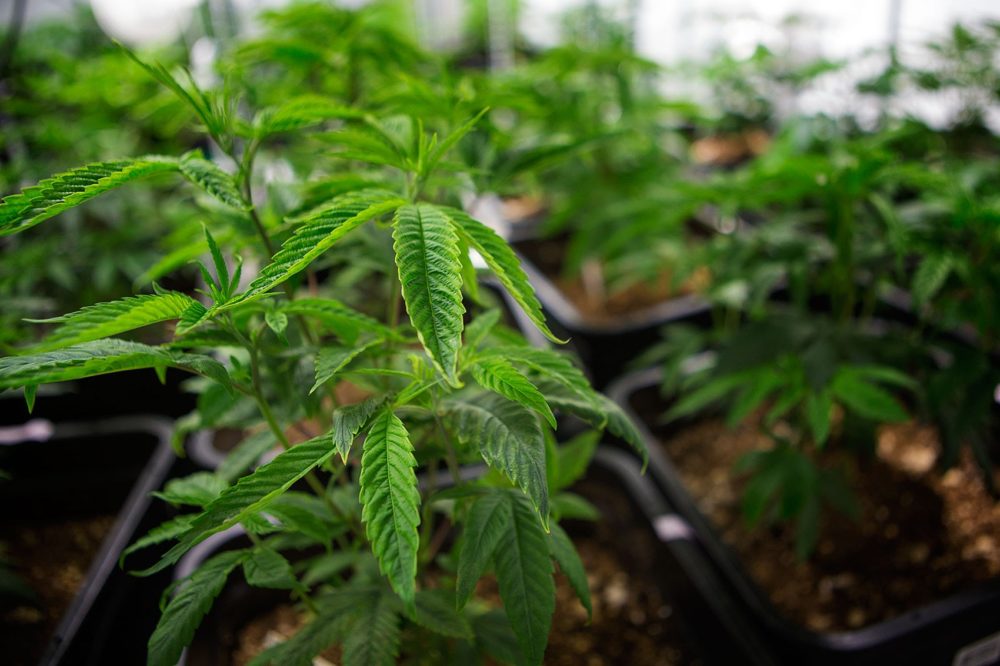Advertisement
Mass. Recreational Marijuana Shops Lose Bid To Reopen During Pandemic

A Suffolk Superior Court judge has denied a request by a group of recreational marijuana businesses to reopen during the coronavirus pandemic.
The businesses had sued Gov. Charlie Baker over his decision to shut down recreational pot businesses in his response to the public health crisis. The businesses said the closures would irreparably harm the burgeoning industry. They also argued that it was arbitrary for the governor to allow liquor sales and medical marijuana sales to continue, while barring sales of recreational marijuana.
Baker has maintained that he does not want to open recreational pot shops during the pandemic, calling the issue a "non-starter." The governor said that allowing recreational pot shops to open would attract people from out of state and hinder efforts to slow the spread of the coronavirus.
Suffolk Superior Court Judge Kenneth Salinger agreed with Baker's argument.
"It was reasonable for the governor to be concerned that the relatively few adult-use marijuana establishments in Massachusetts are more likely than liquor stores or [medical marijuana treatment centers] to attract high volumes of customers, including people traveling from other states," Salinger wrote. "The governor’s decision to treat medical marijuana facilities and liquor stores differently than adult-use marijuana establishments has a rational basis and therefore is constitutional."
The ruling is a blow to the recreational marijuana industry, which has been hoping for some relief.
"We're disappointed," said Adam Fine, one of the attorneys representing the businesses. "I think it was a thoughtful decision by the judge overall. But, you know, one we disagreed with."
Judge Salinger did acknowledge that the recreational marijuana businesses made a "convincing showing" that they could address the governor's safety concerns while keeping their shops open, by taking steps such as limiting sales to Massachusetts residents or allowing adult-use stores to make curbside deliveries of their products — just like medical marijuana establishments are allowed to do.
"If the liquor stores can safely practice social distancing, of course adult- use marijuana establishments can do so — and there's therapeutic benefits to marijuana," Fine said, adding that recreational pot shops are highly regulated and also check IDs already.
Advertisement
But in his ruling, Salinger said Baker was not legally required to implement an alternative plan or ensure that his emergency order imposed the smallest possible economic impact on recreational marijuana shops.
"The governor had to craft and issue these orders in rush in order to help protect the people of Massachusetts from a virulent pandemic," Salinger wrote. "Since the choice made by the Governor was constitutional, the court may not second guess it."
Baker ordered all non-essential businesses to close starting March 24. Recreational marijuana shops were deemed non-essential, while medical marijuana establishments were deemed essential businesses.
"The Administration issued a list of essential services based on federal guidance and tailored to Massachusetts’ unique economy, and agrees with the court’s ruling," Baker spokesman Terry MacCormack said in a statement.
Other states have classified recreational marijuana businesses as essential during the coronavirus pandemic and have even seen record sales.
The forced shutdown has been tough for pot shops in Massachusetts, like other businesses forced to close. Boston's first pot shop and the state's first economic empowerment business, Pure Oasis, had to close just a couple of weeks after it opened.
Meanwhile, the number of medical marijuana patients has surged during the forced closure of adult-use marijuana shops. The Cannabis Control Commission has allowed recreational marijuana suppliers to sell their products to medical cannabis dispensaries, giving some potential relief to a portion of the industry. But much of the industry remains under the business closure order.
It's unclear if the group of recreational marijuana businesses in the lawsuit will appeal the ruling. Fine said they are looking at all of their options.
This article was originally published on April 16, 2020.
